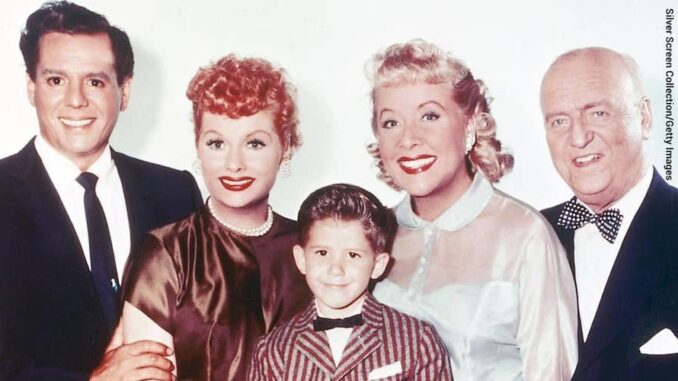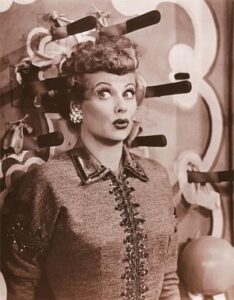
On This Day in History: May 6, 1957 – The Last Episode of ‘I Love Lucy’ Airs
The year 1957 was a pivotal moment in television history. On May 6, millions of Americans tuned in for what would become a monumental event—the final episode of “I Love Lucy.” But this wasn’t just the end of a show; it was the end of an era. The sitcom, which had become a cultural phenomenon, changed the way we watch TV and set the standard for every sitcom that followed.
In this article, we’ll dive deep into why the last episode of “I Love Lucy” still matters today, explore the impact it had on TV and society, and unravel the story behind the iconic show’s conclusion.
What Made ‘I Love Lucy’ So Special?
There are countless sitcoms that have aired over the years, but “I Love Lucy” stands out. Why? For starters, it was the first TV show to use a three-camera format, which would later become the industry standard. The chemistry between Lucille Ball and Desi Arnaz was unparalleled, making every scene both heartwarming and hilarious.

The Journey to May 6, 1957: How Did We Get Here?
To understand the significance of the last episode, we need to trace the journey of “I Love Lucy.” When it first aired in 1951, it was an instant hit. Audiences fell in love with the lovable, quirky Lucy Ricardo and her adventures, often revolving around her attempts to break into show business.
But by 1957, after six seasons and 180 episodes, Lucille Ball and Desi Arnaz decided it was time to move on. It wasn’t an easy decision—audiences were still glued to their screens, eager for more of Lucy’s antics.
Why Did ‘I Love Lucy’ End?
There’s no one reason why “I Love Lucy” ended, but a mix of personal and professional factors came into play. Lucille Ball and Desi Arnaz, who were married in real life, were facing challenges in their relationship. Behind the scenes, the couple’s personal struggles were beginning to affect their work.
Additionally, Ball and Arnaz wanted to explore other creative opportunities. They had proven themselves as TV pioneers, but they were ready for new challenges.
The Emotional Finale: What Happened in the Last Episode?
The final episode, titled “The Ricardos Dedicate a Statue,” aired on May 6, 1957. It wasn’t a grand, climactic send-off as modern audiences might expect. Instead, it was a typical “I Love Lucy” episode filled with humor and lighthearted moments.
In the episode, Ricky Ricardo (played by Desi Arnaz) is honored with a statue in the park, but true to form, chaos ensues. Lucy (Lucille Ball) tries her best to help but ends up accidentally getting cement on herself, causing more laughs.
While the episode itself didn’t feature any dramatic farewells, its airing marked the end of an incredible era in television history.
Was It Really Goodbye?
Even though this episode was the official end of the original “I Love Lucy” series, the characters weren’t done just yet. Lucille Ball and Desi Arnaz reprised their roles in a follow-up series called “The Lucy-Desi Comedy Hour,” which aired until 1960.

The Cultural Impact of ‘I Love Lucy’
“I Love Lucy” didn’t just entertain people; it changed the way television was made. Its influence can still be felt in modern sitcoms like “Friends” and “The Big Bang Theory.” Here’s why it’s so significant:
First Show to Feature a Multiracial Couple
Lucille Ball and Desi Arnaz broke boundaries by showcasing an interracial couple on screen. This was groundbreaking at the time, and it opened doors for more diverse casting in future shows.
Pioneering the Three-Camera Setup
Before “I Love Lucy,” TV shows were filmed using a single camera, often in a live format. But Lucille Ball and Desi Arnaz wanted to create a more polished product. They introduced the three-camera setup, allowing them to film in front of a live studio audience while maintaining high production quality.
Rerun and Syndication Revolution
“I Love Lucy” was also the first show to be rerun on television. When Lucille Ball was pregnant, the show re-aired past episodes, giving birth to the concept of reruns. This practice became a significant revenue stream for TV networks, and it continues to this day.
Why ‘I Love Lucy’ Still Matters Today
More than 60 years later, people are still watching and talking about “I Love Lucy.” But why does it still resonate with audiences? The answer lies in the timeless humor, relatable characters, and the groundbreaking approach to comedy.
Timeless Comedy
Good comedy doesn’t age, and Lucy’s brand of physical humor is just as funny today as it was in 1957. Whether it’s trying to keep up with a conveyor belt of chocolates or stomping grapes in Italy, Lucy’s antics never fail to bring a smile.
Lucy Ricardo: A Relatable Everywoman
Part of what made Lucy Ricardo so beloved was her relatability. She wasn’t perfect—far from it. She constantly got into trouble, made mistakes, and wasn’t afraid to look silly. In many ways, Lucy represented the everyday person, struggling to achieve her dreams.
The Legacy of Lucille Ball and Desi Arnaz
Lucille Ball and Desi Arnaz left behind more than just a TV show. They were trailblazers in the entertainment industry. Their production company, Desilu Productions, went on to produce iconic shows like “Star Trek” and “The Untouchables.”
Lucille Ball: The Queen of Comedy
Ball’s influence on comedy cannot be overstated. She paved the way for future female comedians like Carol Burnett, Tina Fey, and Amy Poehler. Without Lucy, the landscape of television would look very different.
Desi Arnaz: The Unsung Visionary
While Lucille Ball was the face of the show, Desi Arnaz was the mastermind behind the scenes. He revolutionized television production, and his contributions to the industry are often overlooked.
The Enduring Popularity of ‘I Love Lucy’
Despite the fact that it ended over 60 years ago, “I Love Lucy” continues to capture the hearts of new generations. Thanks to reruns, streaming services, and DVD collections, people of all ages are discovering the magic of Lucy Ricardo.
New Generations Discovering Lucy
It’s not uncommon for people in their twenties or even teenagers to stumble upon “I Love Lucy” and instantly fall in love with it. The humor is universal, and the characters are timeless.
Conclusion: Why We’ll Always Love Lucy
The final episode of “I Love Lucy” may have aired on May 6, 1957, but the show’s impact endures to this day. It set the gold standard for sitcoms, broke barriers, and left a lasting legacy that continues to shape television. From its innovative filming techniques to its lovable characters, “I Love Lucy” will forever hold a special place in the hearts of TV lovers.